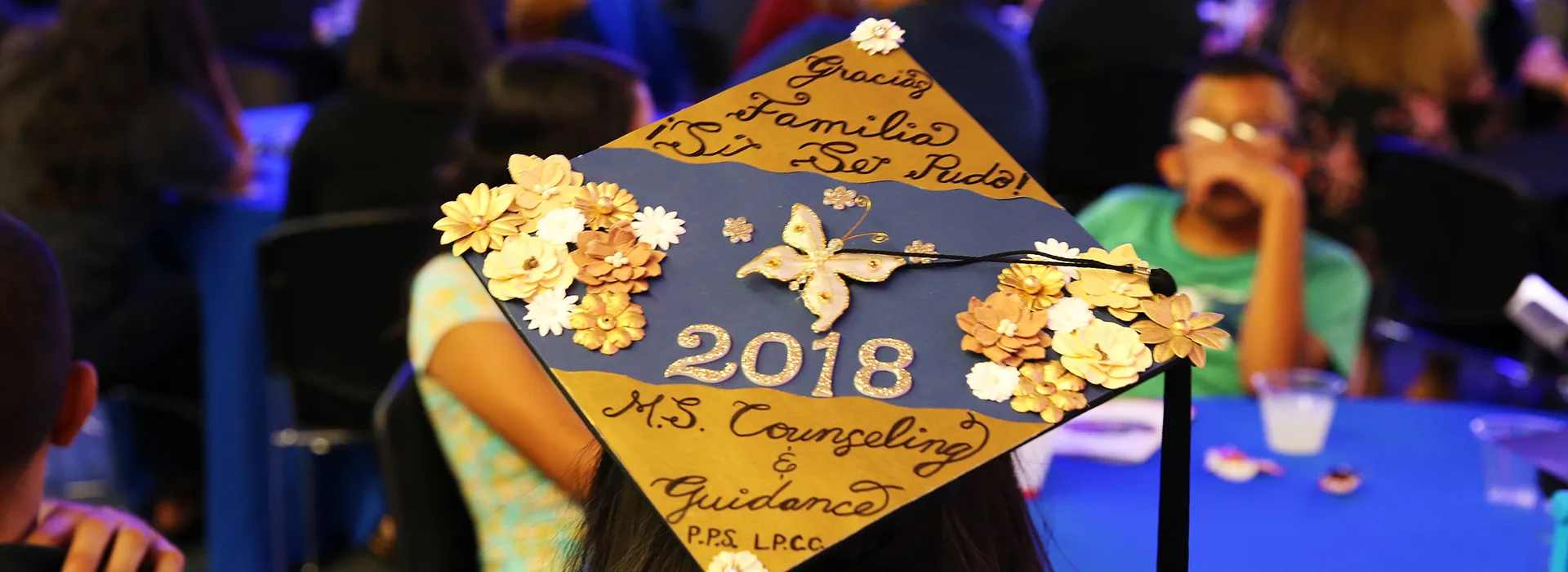Joe Gutierrez Office of Strategic Communication (909) 537-5007 joeg@csusb.edu

Cal State San Bernardino is expanding and creating programs as part of a $125,000 annual grant renewable for up to three years to support undocumented students and their families realize their full potential. CSUSB is one of 32 campuses throughout California that received support this school year from the newly created California Campus Catalyst Fund, which was founded by educators, funders and advocates. To date, the Catalyst Fund has raised nearly $10 million for the three-year initiative. The fund increases support for undocumented students and their families on campuses representing the state’s three public higher education systems: California Community Colleges, California State University and the University of California. Supporters for the Catalyst Fund include the Chavez Family Foundation, College Futures Foundation, Grove Foundation, Evelyn & Walter Haas, Jr. Fund, Ginnie and Peter Haas Jr. Fund, Heising-Simons Foundation, Hellman Foundation, James Irvine Foundation, Michael Moritz and Harriet Heyman, NextGen America, and Weingart Foundation. “We are grateful to the Catalyst Fund Grant, which will go a long way to support our undocumented students. It will help us offer long-needed programs to help their families learn what it takes to prepare their children for college and to help them succeed in college and graduate,” said CSUSB President Tomás D. Morales. “Cal State San Bernardino has long been a beacon of hope and opportunity thanks to the hard work and dedication of our faculty and staff. We have seen how education gives people the power to improve their own lives and community.” The grant will allow the CSUSB Undocumented Student Success Center (USSC) to provide new services, expand programming opportunities and build connections across campus and in the community to help increase retention and graduation rates, said Olivia Rosas, the associate vice president for Student Success and Educational Equity and one of the grant’s administrators. The grant will also create a peer-mentoring program to bring together undocumented students with other students who will help them navigate all aspects of college life based on their own experiences and the resources available to them, Rosas said. According to the Migration Policy Institute, there are 300,000 unauthorized immigrants residing in San Bernardino and Riverside counties. CSUSB serves about 700 self-identified undocumented students or 3.5 percent of the total student enrollment. However, based on county data, studies show that this number is higher because many students do not feel comfortable disclosing their immigration status. More than 90 percent of CSUSB’s undocumented students are first-generation and 93 percent come from high schools and community colleges within the Inland Empire. Another key element of the grant is the development of a parent engagement component at both CSUSB and its Palm Desert Campus. The USSC will collaborate with the Parent Institute for Quality Education (PIQE) and the San Bernardino Community Service Center to establish a nine-week Immigrant Parent Rising Institute, Rosas said. The institute will provide college awareness and financial aid workshops, conversations on how to advocate for their students in a school setting, provide undocumented-friendly college campus visits and build a sense of community with other parents, said Maria Maldonado, coordinator of the USSC. Research shows that parent engagement is critical to the success of students. Greater parent involvement has resulted in higher student test scores and better grades. In addition, college students who have supportive parents and peers experience higher levels of academic achievement compared to students who do not have these connections. The USSC, in working with the San Bernardino Community Service Center, will also offer sessions to provide up-to-date information on immigration laws and policies, understanding and filling out immigration forms, and share resources that will assist them to develop an emergency plan in the event of deportation. After the nine-week course, each parent will receive a certificate of completion. The programs of CSUSB and other Catalyst Fund grantees are building on the trailblazing work of students, educators, community leaders and policymakers around the state in welcoming undocumented students out of the shadows and providing them with the resources they need to succeed. In recent years, California has expanded in-state and state-based financial aid, and undocumented immigrants now qualify for career licensing in law, medicine, real estate and 37 other professions. The ways that the Catalyst Fund supports undocumented students and families is similar to how campuses serve first-generation college-goers, foster youth and other student populations with unique needs. “Undocumented young people and their families are integral to the social, economic and cultural fabric of California, and as such, support for them needs to be woven into our state’s higher education system,” said Victor Garcia of Immigrants Rising, a San Francisco-based nonprofit that is administering the fund. For more information, contact the Cal State San Bernardino Office of Strategic Communication at (909) 537-5007 and visit the Inside CSUSB website.